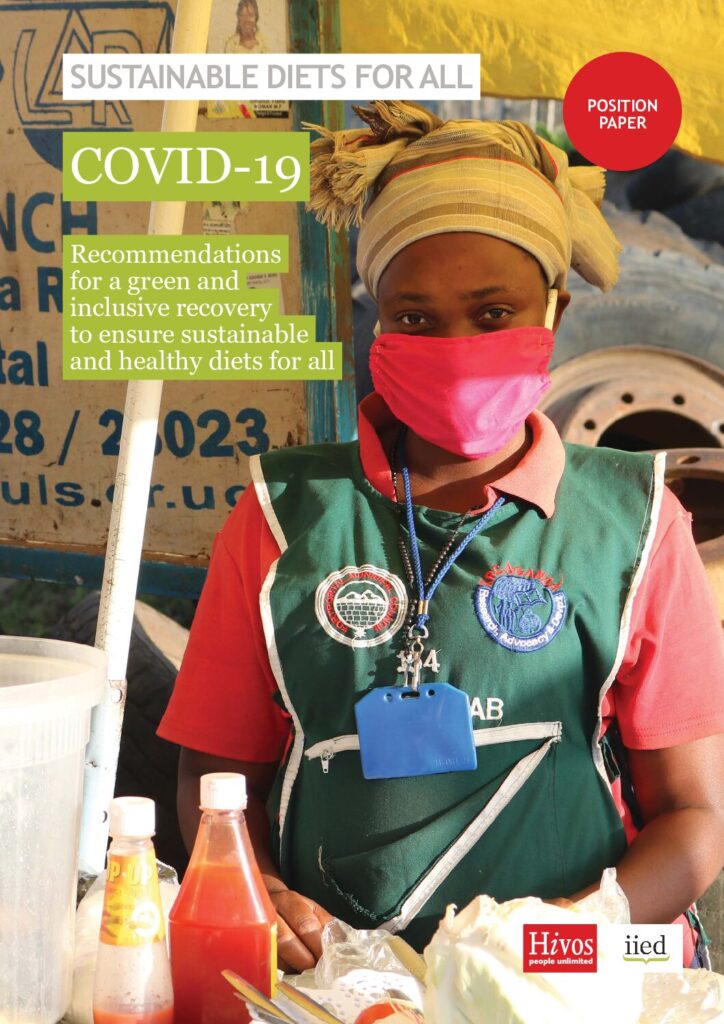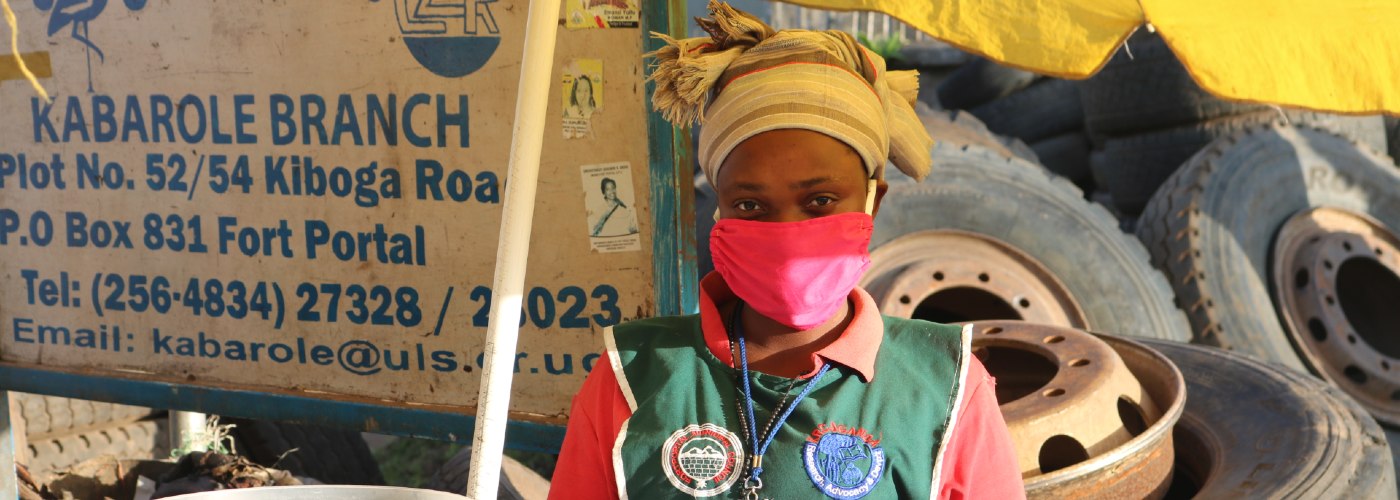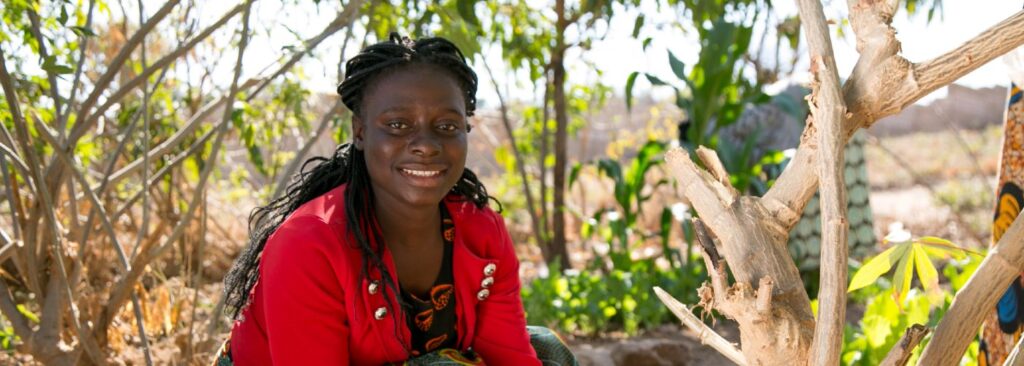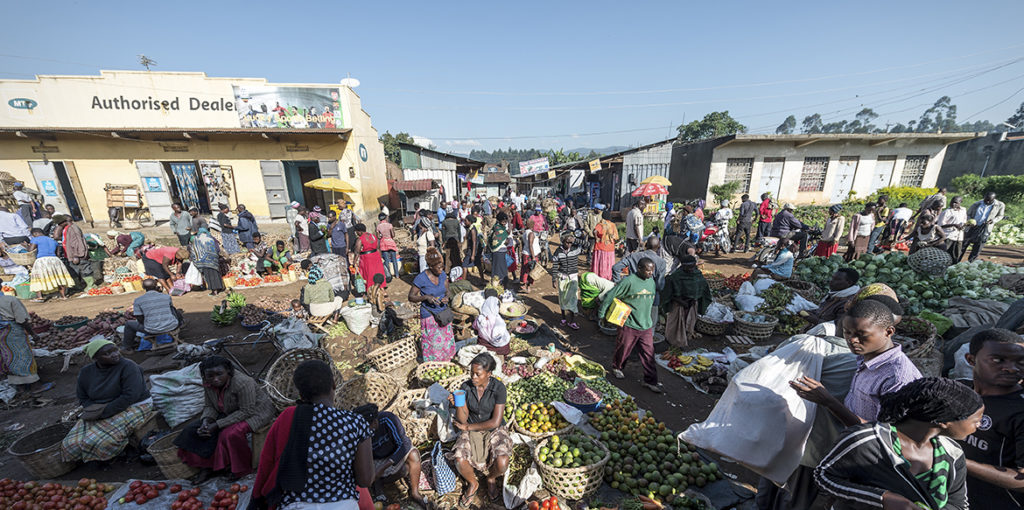By Nout van der Vaart, Hivos Advocacy Officer Sustainable Food
The world is facing ever more challenges as the United Nations celebrates its 75th anniversary this week. Presidents and heads of states must now attend the annual General Assembly digitally. But this is a tiny inconvenience compared to the ways Covid-19 has impacted the world at large.
The pandemic has greatly exacerbated existing inequalities caused by a flawed economic system in an increasingly divided world. So the need for a strong and effective multilateral, long-term response is crucial. And now, the combination of this new health crisis with longstanding economic and social ills means governments’ responses have to be truly green and inclusive to achieve the transformation towards a sustainable future we so urgently need.
Today, Hivos and IIED through our Sustainable Diets for All (SD4All) program are launching a new paper that calls upon governments to adopt crisis mitigation measures that are truly green and inclusive, and that are directly oriented towards building greater resilience against systemic shocks like pandemics and climate change.

Green and inclusive recovery for greater resilience and food security
The impact of the Covid-19 pandemic has been felt worldwide. Whereas industrialized countries generally have the means to tackle outbreaks of the corona virus and mitigate the impact of subsequent economic crises, most lower and middle income countries have less robust health and economic systems.
In many places, this has resulted in suddenly increased food insecurity and a surge in food prices. The World Food Program has warned that if governments fail to formulate adequate long-term responses to the crisis, the number of people facing food crises may double to 265 million by the end of this year. As this pandemic is not a stand-alone crisis, we cannot look exclusively at short-term responses. We must take into account the system failures that generate pandemics like Covid-19, as well as climate change.
To ensure enough healthy and sustainably produced food is accessible and affordable for all, it is imperative that all longer-term economic stimulus recovery responses are truly green and inclusive. Governmental and multilateral policies should focus on rebuilding the food system towards greater equity and sustainability, prioritizing the inclusion of marginalized groups, for whom no work means no income, and no food.
Voices from the global South
In the past few months, the SD4All program has been working with civil society organizations (CSOs) to ensure that government responses tackle structural problems now worsened by the Covid-19 pandemic: poverty, malnutrition, inequality, and environmental destruction.
The voices of underrepresented and marginalized groups should be included specifically.
In Zambia, our partner Civil Society for Poverty Reduction (CSPR) has launched a report that calls for recovery and economic stimulus packages to be in line with the government’s existing food diversification strategy. This means moving beyond the sole production of maize and building greater resilience in the food production system.
In Uganda, the Food Rights Alliance (FRA) has been talking to parliamentarians and government decision-makers about the importance of food diversity in building resilience to climate change and future pandemics. As part of the country’s national Covid-19 task force, it has also explicitly called for making food diversity a key element in the government’s future disaster risk management strategies.
Building back better
Based on these and other Covid-19 mitigation experiences of local SD4All partners, the program has formulated recommendations for governments and the international (donor) community. Economic recovery packages should prioritize developing and strengthening local/regional food value chains to improve food security. Furthermore, they should include small and medium enterprises and other informal food enterprises as key recipients of economic support. These recovery packages should reform food and agricultural subsidies by shifting incentives away from unsustainable intensive monoculture to agro-ecological and low-carbon agricultural practices.
People first
Responses to the pandemic must also particularly assist those most at risk: smallholder farmers, food vendors, low-income consumers and other marginalized groups, in particular women. Governments need to set up or improve consultation processes for designing both short-term and long-term responses to the crisis. The voices of underrepresented and marginalized groups should be included specifically in these processes.
As UN delegates in New York and around the globe prepare for their final rounds of negotiations this week, they should realize that their response to the pandemic offers a chance to build back a better world. To finally start doing what the UN is uniquely positioned to do: end poverty and overcome inequality, halt climate change and biodiversity erosion, and build a world in which all people can thrive.




